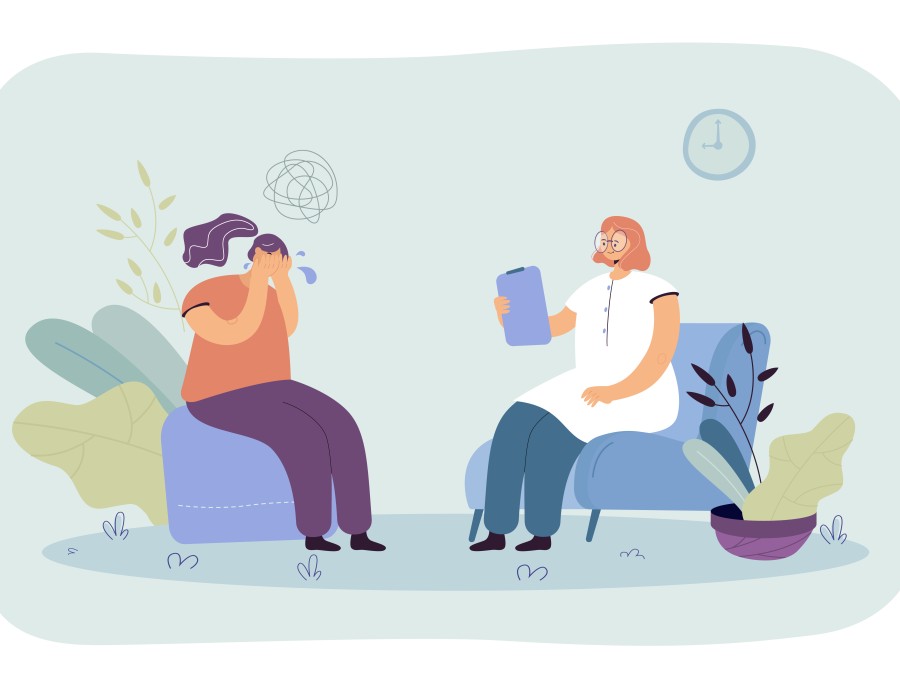Finding the right therapy provider can be a life-changing decision, impacting your mental health and overall well-being. Whether you're facing anxiety, depression, relationship issues, or seeking personal growth, the right therapist can guide you through challenges and help you develop effective coping strategies. In this article, we'll explore how to choose the best therapy provider near you, ensuring that your choice meets your unique needs.
Step 1: Understand Your Needs
Before embarking on your search for therapy near me, take some time to assess your mental health needs. Consider the following questions:
- What are your primary concerns? Are you dealing with anxiety, depression, trauma, or a specific life transition?
- What type of therapy do you believe will help? Different therapeutic approaches, such as cognitive-behavioral therapy (CBT), psychodynamic therapy, or mindfulness-based therapy, can address various issues.
- Do you have any preferences regarding the therapist's demographics? Some individuals prefer working with a therapist of a specific gender, age, or cultural background.
Understanding your needs is crucial for finding a therapist who specializes in the areas relevant to you.
Step 2: Use Online Resources
A straightforward way to start your search for a therapist near me is to utilize online resources. Here are some effective tools:
- Therapist Directories: You can search for therapists by area, expertise, and insurance acceptance on websites such as Psychology Today, TherapyDen, and GoodTherapy. These directories provide comprehensive profiles, including qualifications, therapy styles, and client reviews.
- Social Media and Forums: Platforms such as Facebook or Reddit often have groups dedicated to mental health discussions where you can ask for recommendations. Many therapists also maintain professional profiles on social media, showcasing their expertise.
- Referrals: Ask friends, family, or your primary care physician for recommendations. Personal referrals can often lead you to reputable therapists who have helped others in similar situations.
Step 3: Verify Credentials and Specializations
After you've compiled a list of possible therapists, you should confirm their qualifications. Look for licensed professionals who are qualified to provide therapy in your state. Here’s what to check:
- Licensure: Ensure the therapist holds a valid license, such as Licensed Clinical Social Worker (LCSW), Licensed Professional Counselor (LPC), or Psychologist (PhD or PsyD).
- Specializations: Many therapists have specific areas of expertise. For instance, if you're struggling with anxiety, seek out someone who specializes in anxiety disorders or stress management.
Therapists may also have advanced training in particular modalities, such as EMDR (Eye Movement Desensitization and Reprocessing) or family therapy.Verify that their credentials meet your requirements.
Step 4: Schedule Initial Consultations
After narrowing down your list, schedule initial consultations with a few therapists. Many offer a free consultation or a reduced fee for the first session. During these meetings, consider the following:
- Comfort Level: Do you feel comfortable discussing your concerns with this therapist? A trusting relationship is essential for effective therapy.
- Communication Style: Observe how the therapist communicates. Are they empathetic, attentive, and open to your questions?
- Approach to Therapy: Ask about their therapeutic approach and how they plan to help you. Understanding their methodology can help you gauge if it aligns with your expectations.
Step 5: Evaluate Practical Considerations
Once you've identified potential therapists you feel comfortable with, consider the following logistical factors:
- Location: Is their office conveniently located? If transportation is a concern, ask if they offer virtual sessions, which can be a great alternative.
- Cost and Insurance: Inquire about fees and whether they accept your insurance. Many therapists have sliding scale fees based on income, making therapy more accessible.
- Availability: Ensure the therapist's schedule aligns with yours. Consistency is crucial in therapy, so finding a therapist with available slots that fit your routine is important.
Step 6: Trust Your Instincts
Choosing a therapist is a personal decision. It’s essential to trust your instincts throughout the process. It's a good indication if you connect well with a therapist and think they can assist you. Conversely, if you feel uncomfortable or that a particular therapist isn’t the right fit after several sessions, it’s okay to seek out someone else.
Conclusion
Searching for the right therapy near me can feel overwhelming, but by following these steps, you can make the process more manageable. By understanding your needs, utilizing online resources, verifying credentials, scheduling consultations, and evaluating practical considerations, you'll be well on your way to finding a therapist who aligns with your goals.
Investing in your mental health is a vital step toward living a fulfilling life. Prioritize finding the right therapist for your needs, and take the first step toward healing and personal growth today. Remember, you are not alone in this journey, and the right support is available to help you navigate life’s challenges.






Comments